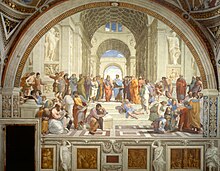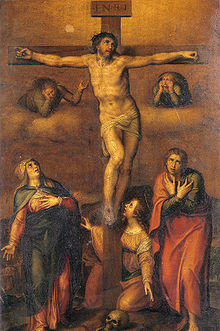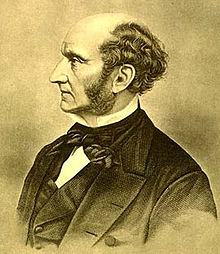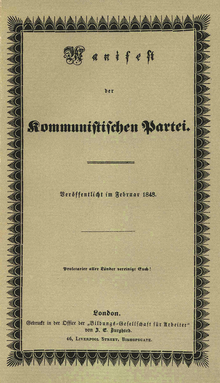User:Wikidea/History, philosophy and law sources
Appearance
| This is a Wikipedia user page.
This is not an encyclopedia article. If you find this page on any site other than Wikipedia, you are viewing a mirror site. Be aware that the page may be outdated and that the user to whom this page belongs may have no personal affiliation with any site other than Wikipedia itself. The original page is located here. |
Sources on history, philosophy and law are listed here.
- FW Maitland, "Such is the unity of all history that any one who endeavours to tell a piece of it must feel that his first sentence tears a seamless web." [1]
Ancient world
[edit]Greece
[edit]
- Trial of Socrates and Socrates (469BC-399BC)
- Plato (428BC-348BC) and Xenophon's version; Aristophanes and The Clouds
- Herodotus (484BC-425BC) the "father of history" and The Histories, with Persian autocracy and Greek democracy
- Thales and ancient philosophy; Pythagoras; Democritus (460BC-370BC) and atoms
- Pericles (495-429BC) and his funeral oration, recorded by Thuycidides in the History of the Peloponnesian War
- Sophocles (496-406BC), Antigone (442BC) natural law, civil disobedience
- Plato's Crito
- Plato's The Republic - and previous legal systems, eg Codex Hammurabi
- Philosopher King and quis custodiet ipsos custodes
- The Laws and "what is law"? Also, terminological inexactitude, "In this discordant and inconsistent fashion does the language of the many rend asunder the honourable and just." [In this discordant and inconsistent fashion does the language of the many rend asunder the honourable and just. Book 9, 860]
- AN Whitehead, Process and Reality (1929) "The safest general characterization of the European philosophical tradition is that it consists of a series of footnotes to Plato."
- Aristotle (384-322BC), Nicomachean Ethics, on the origins of equity and the distinction to law and 1132a-1132b, saying the purpose of justice is to maintain an equilibrium of goods among members of society.[2]
- The Politics, on forms of government and the profit motive
- Rhetoric (Aristotle) (305BC)
- Alexander the Great (356 BC-323 BC, reigned 336BC-323BC)
Rome
[edit]
- Roman Republic (509 BC - 27 BC), Twelve Tables (450 BC), Roman law and Roman constitution (which governed all of Europe; the Pyrrhic Victory (280BC), Punic wars (264BC-146BC)
- Cicero (106BC-43BC), Writings of Marcus Tullius Cicero and De Legibus
- Julius Caesar (100BC-44BC), Mark Anthony
- Virgil (90BC-17BC)
- List of Asterix volumes
- Augustus (63BC-14AD) and the Roman Empire
- Tiberius (42BC-37AD), Caligula, Claudius (10BC-54AD) and Nero (35-68) and Great Fire of Rome (64)
- Seneca the Elder (54BC-39AD) Seneca the Younger (4BC-65AD)
- Pliny the Elder (23-79)
- Tacitus (56-117)
- Pax Romana and Five Good Emperors - Nerva (30-98), Trajan, Hadrian, Antoninus Pius and...
- Marcus Aurelius (121-180), Meditations
- See map and Machiavelli, Discourses on the First Decade of Titus Livy, Book I, Chapter 10
- Epictetus (55-135) and determinism
- Gaius (130-180), Lex est quod populus iubet atque constituit (Institutiones 1.2.3)
- Law of Citations and Theodosius II in 426
- Papinian (142-212), Ulpian (d 228, Jus est ars boni et aequi), Paulus (d ca 240) and Modestinus (d ca 250)
Decline and darkness
[edit]

- Trial of Jesus (33AD), Mark 14:53–65, Matthew 26:57–68, Luke 22:63–71 and John 18:12–24 in the late first century onwards.
- St Peter's execution in 64AD
- Diocletian (244-311, reigned 284-286, 305)
- Constantine I (282-337), Christianity and the Battle of Milvian Bridge in 312 AD
- St Augustine of Hippo and The City of God (ca 410 AD), explaining pursuit of virtue in the afterlife; and the concept of a just war (recognisable goal, proportionate) shortly after the sack of Rome (410) and the fall of the Western Empire in 476.
- Justinian's Corpus Juris Civilis (529) and Institutes
- Hagia Sophia (532AD) and from 529AD, closing the philosophy schools as pagan and contrary to Christianity
- History of the Roman Catholic Church and Augustine of Canterbury (530-604)
- Heraclius adopts Greek as the first language for the Byzantine Empire in 610 and the Dark Ages ensue
- Muhammad (570-632) sees the Angel Gabriel in 610, beginning the revelation of the Qu'ran
- Charlemagne, crowned by Pope Leo III in 800
Rebirth
[edit]High Middle Ages
[edit]
- William the Conqueror (1066), the Domesday book and the common law
- Thomas Becket (1118-1170)
- Crusades (1095-1272)
- the Third Crusade (1187-1192) and King Richard I and the sack of Constantinople in the Fourth Crusade (1204)
- Magna Carta (1215), clause 61 and constitutional government, John of England's signing under duress absolved by Pope Innocent III.
- the law of trusts and the Lord Chancellor under King Edward I from 1280
- Lord Mayor of the City of London (elected from 1215), Sir Richard Whittington (ca 1354–1423), Dick Whittington and His Cat, Worshipful Company of Mercers and Livery Companies and usury
- Thomas Aquinas, Summa Theologica (1274) and the lex mercatoria
- A just price, good faith, etc
- Dante (1265-1321), Divine Comedy
- Venetian Republic and Marco Polo (1254-1324)
- Black Death, circa 1350
- Geoffrey Chaucer's The Canterbury Tales (1385) and the General Prologue and The Man of Law's Prologue and Tale
- Islamic jurisprudence and Ibn Khaldun (1332-1406)
Renaissance
[edit]
- Dante (1265-1321), Divina Comeedia (1308-1321)
- Francesco Petrarca (1304-1374) and humanism
- Lorenzo Ghiberti and Filippo Brunelleschi's competitive tender for the Baptistery bronze doors of Florence Cathedral (1401)
- Reconquista 1238 and 1492
- Hundred Years' War for the French Throne (1337 to 1453)
- Fall of Constantinople (1453)
- Isabella I of Castile, the Spanish Inquisition (1481)
- Christopher Columbus sails to the New World (1492)
- Leonardo da Vinci (1452-1519)
- Matteo Palmieri (1406–1475)
- Desiderius Erasmus (1466-1536), The Praise of Folly (1511) and Education of a Christian Prince (1516)
- Nicolaus Copernicus (1473-1543)
- Machiavelli, The Prince (1513, pub 1532)
- Sir Thomas More's Utopia (1516)
- Martin Luther (1483-1546) nails demands to the door (1521)
Reformation
[edit]
- Trial of Sir Thomas More; by Henry VIII under Treason Act 1534 (1535) and Sir Thomas More (play) (1592)
- Sir Anthony Fitzherbert (1470-1538), New Natura Brevium (1534)
- William Shakespeare (1564-1616) and King Lear
- John Donne (1572-1631) and Meditation XVII
- Francis Bacon (1561-1626) and the Star Chamber[3] (1500s-1641)
- Galileo Galilei (1564-1642), Dialogue Concerning the Two Chief World Systems (1632) and trial by the Pope in the Roman Inquisition
- Sir Edward Coke's Institutes of the Lawes of England (1620) and journey on The Mayflower
- Dr. Bonham's Case (1610) William Aldred's Case (1610), Case of Sutton's Hospital (1612)
- Gunpowder Plot (1605)
- Thirty Years' War of the Holy Roman Empire and the Peace of Westphalia (1618-1648)
- Hugo Grotius (1583-1645) De jure belli ac pacis (1631) and history of international law and unjust enrichment?
- John Selden (1584-1654) "Equity is a roguish thing."
- Descartes (1596-1650), who trained as a lawyer
- High Court of Justice for the trial of Charles I (1649)
- English Civil War (1642), Cromwellian dictatorship (ending 1659)
- John Milton (1608-1674), Areopagitica (1644) defending free expression and Paradise Lost (1667)
- Thomas Hobbes' Leviathan (book) (1651)
- Charles II of England's Restoration and the Great Fire of London (1666) and Great Plague of London (1667)
Enlightenment
[edit]
- Sir Isaac Newton (1643-1727)
- Baruch Spinoza's On the Improvement of the Understanding (1662) and Political Essay (1677)
- Bill of Rights 1689 and Habeas Corpus Act 1679
- The Glorious Revolution (1688) and Parliamentary sovereignty
- John Locke's Two Treatises of Government (1689) and An Essay Concerning Human Understanding
- The problem of non-existent rights when too much discretion is given to the sovereign.
- Education Act 1696
- Lord Holt CJ, Turberville v Stampe (1697) 91 ER 1072 (nuisance and vicarious liability), Ashby v White (1703) 2 Ld Raym 938 (the right to vote) and Smith v Gould (1705-07) 2 Salk 666 (antagonism to slavery)
- Act of Union (1707) and Queen Anne's last attempt to interfere with Parliament (1710)
- South Sea Bubble (1719) and Keech v Sandford (1726) 25 ER 223
- Armory v Delamirie (1722) 1 Strange 505
- Jonathan Swift, A Modest Proposal (1729) here, cf utilitarianism!
- David Hume, A Treatise of Human Nature, Book III (1740) and is-ought problem
- Charles de Secondat, baron de Montesquieu, De l'Esprit des Lois (1748)
- Jean Jacques Rousseau, Discourse on Inequality (1754) and The Social Contract
- Adam Smith, The Theory of Moral Sentiments (1759)
- Lord Camden and Entick v Carrington (1765) 95 ER 107
- William Blackstone's Commentaries on the Laws of England (1765)
- ...but keep in mind, colonialism and Doctrine of reception or terra nullius
- Lord Mansfield, Pillans v Van Mierop (consideration), Carter v Boehm (good faith) and Somersett's Case (1772) (slavery)
- William Wilberforce (1759-1833)
- Johann Wolfgang von Goethe (1749-1832)
Modernity
[edit]Revolution
[edit]
- US Declaration of Independence (1776)
- Pitt the Elder, John Wilkes speeches; George III of England
- Immanuel Kant, Grundlegung zur Metaphysik der Sitten (1786) and Kritik der reinen Vernunft (1787) and Groundwork of the Metaphysics of Morals, 42
- French Revolution (1791) and Declaration of the Rights of Man and of the Citizen (incl progressive income tax)
- Tom Paine, The Rights of Man (1791)
- Jeremy Bentham, Fragment on Government (1776), Introduction to Principles of Morals and Legislation (1780) and Anarchical Fallacies (1791)
- Industrial Revolution
- Adam Smith, The Wealth of Nations (1776) - emphasising economic thinking toward laws
| “ | A dwelling-house, as such, contributes nothing to the revenue of its inhabitant,” Smith said in The Wealth of Nations. “If it is lett [sic] to a tenant for rent, as the house itself can produce nothing, the tenant must always pay the rent out of some other revenue.” Therefore Smith concluded that, although a house can make money for its owner if it is rented, “the revenue of the whole body of the people can never be in the smallest degree increased by it. | ” |
- Marbury v Madison (1810) and the US Constitution
Great Britain
[edit]
- British Empire and Queen Victoria
- John Austin, The Province of Jurisprudence Determined and the University of London
- David Ricardo, Principles of Political Economy and Taxation (1817) and *Thomas Malthus, Essay On Population
- John Stuart Mill
- Felicific calculus, utilitarianism and happiness
- Principles of Political Economy (1848) and Utilitarianism (1863), Considerations on Representative Government (1861), Auguste Comte and Positivism (1865), The Subjection of Women (1869) and Chapters on Socialism
- On Liberty (1859)
- Charles Darwin, The Origin of Species (1859)
- Winterbottom v Wright, Rylands v Fletcher, Bamford v Turnley
- Joint Stock Companies Act 1856 and history of company law
- Freedom of contract, property and the right to vote
Europe
[edit]
- Code Napoleon
- Friedrich Carl von Savigny (1779-1861) Das Recht des Besitzes (1803), System des heutigen Römischen Rechts ([1]) and the University of Berlin (1810)
- Georg Wilhelm Friedrich Hegel, Philosophy of Right (1821)
- Arthur Schopenhauer, The Art of Being Right (1831)
- Friedrich Nietzsche (1844-1900), Zur Genealogie der Moral, Second Essay
- Bürgerliches Gesetzbuch, Otto von Bismarck and the Second Reich (1871)
- Max Weber, Die protestantische Ethik und der Geist des Kapitalismus (1905), Politik als Beruf (1919) and Economy and Society
America
[edit]- Abraham Lincoln and the American Civil War (1865)
- Mark Twain, Tom Sawyer (1876) and Adventures of Huckleberry Finn (1885)
- History of competition law and antitrust and the Sherman Act
- Wesley Newcomb Hohfeld Fundamental Legal Conceptions, As Applied in Judicial Reasoning and Other Legal Essays (1919)
Socialism
[edit]
- Robert Owen (1771-1858) and A New View Of Society (1813)
- Revolutions of 1848
- Karl Marx, Das Kapital (1867), On the Jewish Question
- Communist Manifesto (1848) whose ten demands were, free primary education, progressive income tax, inheritance tax, government provided transport and communication, nationalisation of banks, a government agricultural plan, (and more radically) a duty of everyone to work, gradually nationalising industry, abolishing private property in land, confiscating emigrants' and rebels' property and distributing the population equally across the country.
- Chartism
- Pierre Proudhon, What Is Property? (1840)
- Income Tax Act 1842
- Sir Henry James Sumner Maine, Ancient Law (1864) and the move from status to contract
- Second Reform Act 1867 debates (1867) and history of democracy
- Elementary Education Act 1870
- Albert Venn Dicey, An Introduction to the Study of the Law of the Constitution (1885)
- FW Maitland and Sir Frederick Pollock, 3rd Baronet, History of English Law before the Time of Edward I
- Parliament Acts 1911 and 1949
- Beatrice Webb and Sidney Webb, History of Trade Unionism (1894) and Industrial Democracy (1897)
- Trade Union Act 1871, Trade Disputes Act 1906 and the history of labour law
- Pensions and the National Insurance Act 1911, unemployment benefits.
- Clayton Act of 1914
- Albert Einstein (1879-1955), Theory of Relativity (1905)
Twentieth Century
[edit]Apocalypse
[edit]- World War One
- Russian Revolution (1917) and Lenin
- International Labour Organisation (1919), the League of Nations, and a new kind of constitutional law
- Donoghue v Stevenson [1932] AC 562 and consumer protection
- Hans Kelsen's Pure Theory of Law (1934)
- Adolf Hitler, Nuremberg Trials and Stalin
Language games
[edit]- Bertrand Russell, A History of Western Philosophy and positivism
- Ludwig Wittgenstein, Philosophical Investigations (1953)
- Lon Fuller, The Morality of Law (1964)
- HLA Hart's The Concept of Law (1961) and the Hart-Fuller debate (1958)[4]
- Ronald Dworkin, Law's Empire (1985) a student of both Fuller and Hart.
- Joseph Raz', Ethics in the Public Domain
Post War political philosophy
[edit]
- Soviet Union and United States of America, communism and capitalism
- Friedrich von Hayek, The Road to Serfdom (1943)
- Karl Popper, The Open Society and Its Enemies (1945)
- Isaiah Berlin, 'Two Concepts of Liberty' (1958)
- John Rawls, A Theory of Justice (1971) and Robert Nozick, Anarchy, State and Utopia (1972)
- Ronald Dworkin, Taking Rights Seriously (1977)
The globalisation context
[edit]
- United Nations, International Court of Justice, International Criminal Court, the International Monetary Fund, World Bank
- John Maynard Keynes, World Trade Organisation[5]
- EU law and the Treaty of Rome (1952), Van Gend en Loos v Nederlandse Administratie der Belastingen [1963] ECR 1 and the common agricultural policy
- European Convention on Human Rights
- OPEC, Milton Friedman, Margaret Thatcher, Ronald Reagan and the failure of Bretton Woods
- Mitbestimmungsgesetz Urteil BVerGE 50, 290, Bullock Report (1977)
- Mabo v Queensland (No 2) (1992) 175 CLR 1, Pepper v Hart [1993] AC 593
- Patrick Atiyah, The Rise and Fall of Freedom of Contract (1979)
- Where will things go next?
See also
[edit]Notes
[edit]- ^ A Prologue to a History of English Law (1898) 14 LQR 13
- ^ LL Fuller and WR Perdue, ‘The Reliance Interest in Contract Damages’ (1936) 46 Yale LJ 52-56
- ^ Faretta v. California, 422 U.S. 806, 821-22 (1975) "the Star Chamber has, for centuries, symbolized disregard of basic individual rights. The Star Chamber not merely allowed, but required, defendants to have counsel. The defendant's answer to an indictment was not accepted unless it was signed by counsel. When counsel refused to sign the answer, for whatever reason, the defendant was considered to have confessed."
- ^ HLA Hart, 'Positivism and the Separation of Law and Morals' (1958) 71 Harvard Law Review 593-629 and LL Fuller 'Positivism and Fidelity to Law: A Reply to Professor Hart' (1958) 71(4) Harvard Law Review 630-672
- ^ If the arbitration process became the civil court of the UN?
- What should the law be?
- Constitutional law (BC)
- Contract, tort, unjust enrichment, property (BC)
- Intellectual property (16th century)
- International law and administrative law (17th century)
- Human rights, civil liberties (18th century)
- Labour law, company law, competition law (19th century)
- Criminal law, family law (19th century)
- Public international law, particularly international institutions (20th century)
- Statistics by date
- World population, by country
- Literacy levels, by country?
- Inventions by date
- Art, music and literature by date
